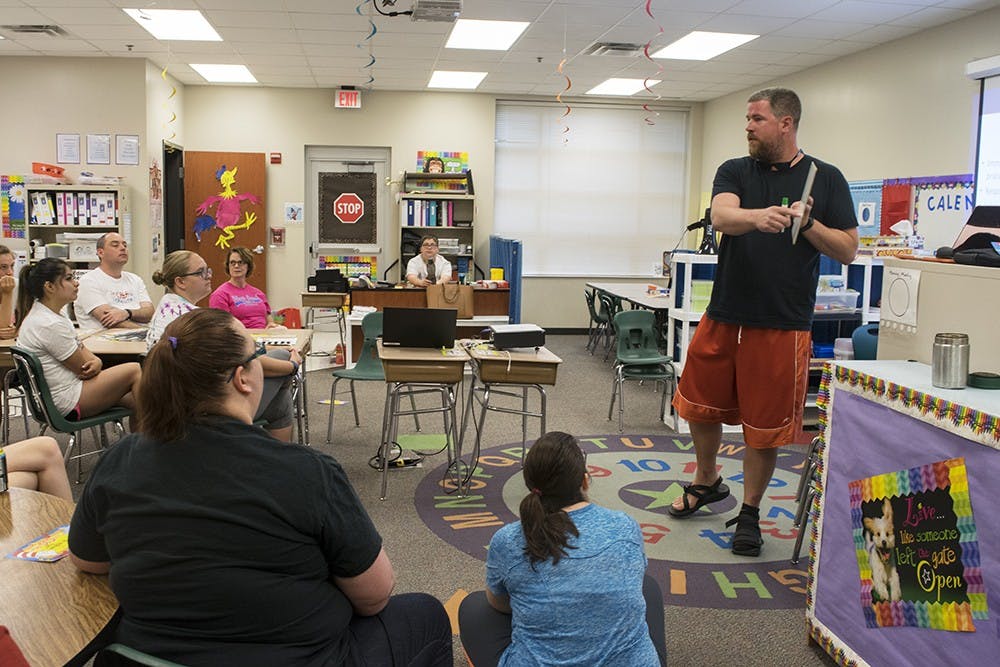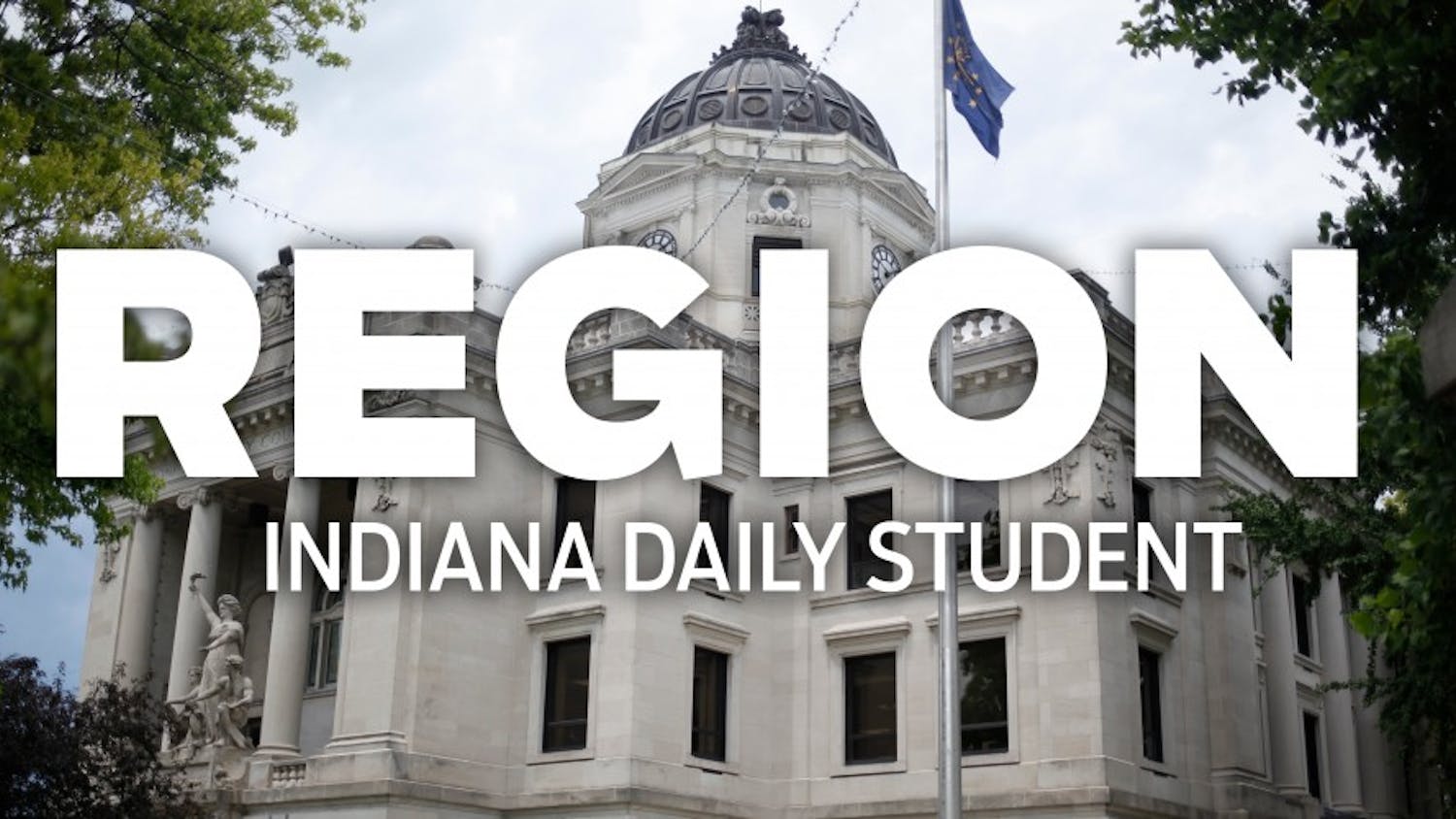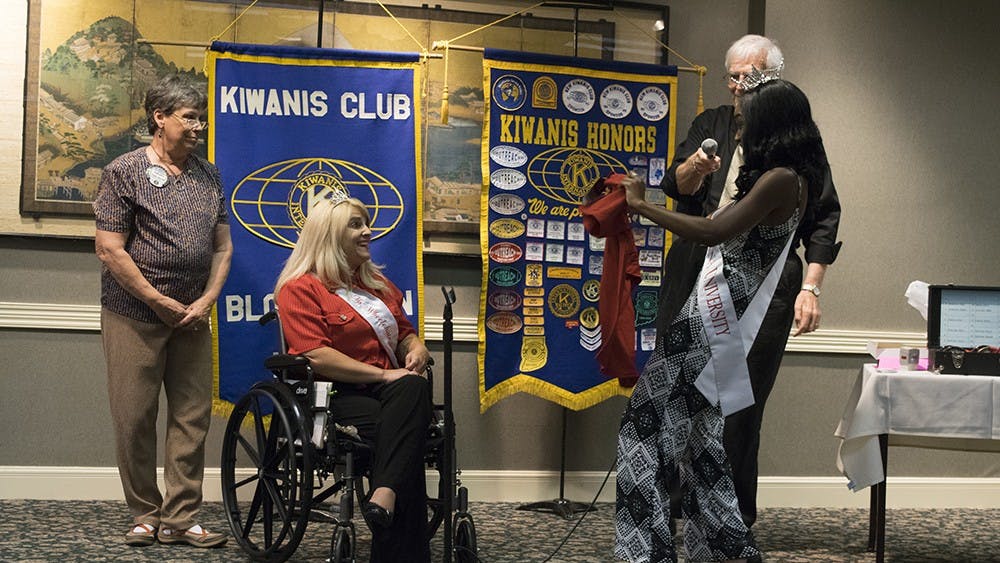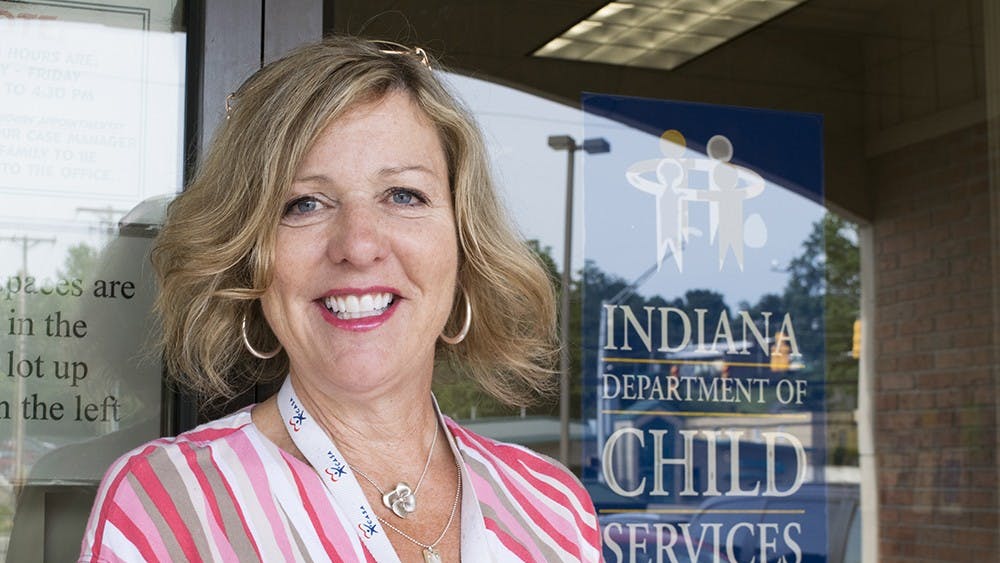It’s 8:15. The campers will arrive shortly at Camp Connections, but first, the staff members that run the camp have some learning to do themselves. They all pile into a single classroom, sitting at desks too low for an adult but just right for a child.
Surrounded by colorful posters and Dr. Seuss characters, Mark Howard, a teacher at Clear Creek Elementary school, stands at the front of a classroom to deliver a lecture to the classroom of adults. They all pay sharp attention to what he says, because for the upcoming day at Camp Connections, it could be critical knowledge.
Camp Connections is a collaboration between Monroe County Community School Corporation and IU’s Department of Speech and Hearing. The program provides the opportunity for students with moderate to severe speech and language needs to attend a traditional summer camp while also providing training opportunities for speech and hearing graduate students.
Twenty-four campers gradually trickle through the doors of Summit Elementary School. The campers, who are grade school students that attend an MCCSC school, attend Camp Connections for eight days, where they’re surrounded by peers, MCCSC staff and IU speech and hearing graduate students.
The campers congregate in the playground for a morning warm-up session to get them pumped for the upcoming camp day.
“Let me see your happy dance,” shouts Erin Peabody, an assistant clinical speech and hearing professor who supervises Camp Connections.
“What’s that you say?” respond the campers and staff standing with them.
Inside, the campers file into their classrooms, where the day’s activities begin. One classroom paints with apples. In another classroom, students are working on paper plate creations of Mr. Brown from Dr. Seuss’s “Mr. Brown Can Moo.” Students tap on tablets, using the visual LAMP app to help them communicate.
Visuals are vital at Camp Connections. When campers first walk into their classroom, they follow a photo of themselves to find their cubby. Beneath a second photo of themselves are illustrations of the schedule for today. Campers can study the schedule to understand what comes next in their day, teaching campers how to use a schedule.
This is all deliberate, says Peabody. “We’re imbedding functional life routine skills into the camp,” she said.
Outside, the campers congregate for the sports portion of their day. Campers take turns crawling under and leaping over foam hoops. Each time the camper approaches the hoop, they’re asked: “Over or under?”
Doing so subtly helps students practice their prepositions.
“We are training staff to understand you can imbed language into any activity,” Peabody said.
For Annette Castillo, the mother of a camper, Camp Connections is “the best of both worlds.” Her son, Richie, has been going to IU Speech and Hearing since he was two, so it was a natural transition for him to attend Camp Connections, which he’s attended every year since it began in 2013. Her only regret, she said, is that it isn’t longer.
Another parent, Brant Moriarity, has been bringing his 12-year-old son to Camp Connections for three years. Patton, his son, has a routine and regular social interaction during the school year, but in the summer it becomes difficult to maintain.
“This camp is kind of an oasis of social interaction for him,” he said.
Parents benefit from a continuity of care by MCCSC teachers and paraeducators — Moriarity said his son Patton’s teacher and paraeducator are both at Camp Connections.
Camp Connections is also completely free for MCCSC students, a huge relief to the families of campers.
As beneficial as the camp is for the campers, it helps the Camp Connections staff just as much. At camp, the graduate students, paraeducators and teachers learn to collaborate to create a individualized, attentive environment for the campers.
“Having a safe place to develop those skills with staff in place to support you is critical,” Peabody said.
Anna Goss is one such graduate student. In her third semester of IU’s speech-language pathology graduate program, she’s gaining valuable clinical experience at Camp Connections. Her favorite part of the experience has been the one-on-one moments she has with campers, she said.
“Seeing [the campers] read a book or playing is just priceless,” she said.
When camp is over, Peabody hopes that the staff members can take their skills beyond the classroom walls of Camp Connections.
“They leave IU and go across the United States and when they get to their place of practice, they won’t be scared,” Peabody said. “The ripple affect is huge. We’re teaching the future how to work with these kids.”






